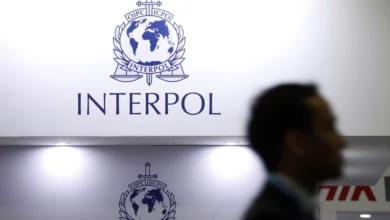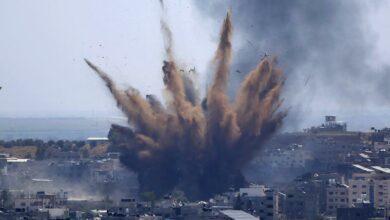Egypt’s military rulers received a major blow on Saturday when a court in Cairo referred the legal provision for trying civilians before military courts to the Supreme Constitutional Court to rule whether it is constitutional or not.
A local human rights watchdog filed a suit with the Administrative Court calling for an end to referring civilians to military courts, challenging what it believes to be the unconstitutional Article 48 of the Military Courts Law 125/1966.
“The significance of referring Article 48 to the constitutional court is that the legislator specified limited cases for trying civilians before military court as in Article 5 to Article 8 of the Military Courts Law 125/1966. Apart from those cases, trying civilians before military courts is invalid,” said a statement by the Egyptian Center for Economic and Social Rights (ECESR), who filed the suit.
According to the statement, Article 48 grants the military judiciary the right to determine whether any case comes within its own jurisdiction or not.
“This encroaches on the constitutional rights of citizens and wastes guarantees of fair trials,” said the statement.
Referring civilians to military tribunals has been a core dispute between revolutionary forces and Egypt's Supreme Council of Armed Force (SCAF), which took power after former President Hosni Mubarak stepped down on 11 February.
Since then, the SCAF has arrested and tried more civilians before military tribunals than during the whole 30-year rule of Mubarak, said a statement issued on Saturday by international rights watchdog Human Rights Watch.
"Nearly 12,000 prosecutions since February is astounding and shows how Egypt's military rulers are undermining the transition to democracy," Joe Stork, deputy Middle East and North Africa director at Human Rights Watch, said in a statement.
Moreover, under Mubarak, “such trials were reserved for high-profile political cases, such as the 2008 conviction of the former deputy guide of the Muslim Brotherhood, Khairat al-Shatir, and 24 others; cases in which the defendants had been arrested in a military zone such as the Sinai; or bloggers who criticized the military,” he added.
On 1 August, army troops wielded batons and fired in the air to clear Tahrir Square of protestors holding a sit-in calling for, among other demands, an end to trying civilians in military courts. Eyewitnesses said the army arrested and tortured scores of protestors.
In the following five weeks the square, which was the epicenter of the uprising that toppled Mubarak, became a military zone in which army and police forces were permanently deployed to curb any attempt to protest.
Yesterday, however, security was conspicuously absent as thousands of Egyptians returned to Tahrir for the Friday of "Correcting the Path of the Revolution." Again, one of their top demands was an end to military trials for civilians.
On 5 September General Adel al-Morsy, head of the Military Justice Commission, said in news conference that the SCAF will stop trying civilians in military courts when it scraps Emergency Law ahead of the parliamentary elections scheduled for November.
Morsy gave the first official figure for the number of civilians tried before military tribunals, saying that they numbered 11,879 between 28 January and 29 August.
He added that military courts have convicted 8071 people, including 1836 suspended sentences, while a further 1225 convictions are awaiting ratification by the military.
This means that “military courts have acquitted only 795 of the nearly 12,000 cases they have tried, a conviction rate of 93 percent," Human Rights Watch said.
Last month, the government said it had begun procedures to end the decades-old Emergency Law before the elections are held, but it seems this will be insufficient.
“The military should end the state of emergency immediately, but even that will not be enough to end military trials of civilians,” Human Rights Watch said. “The Egyptian authorities should amend the Code of Military Justice in line with its obligations under international law to limit military jurisdiction to military offenses.”




